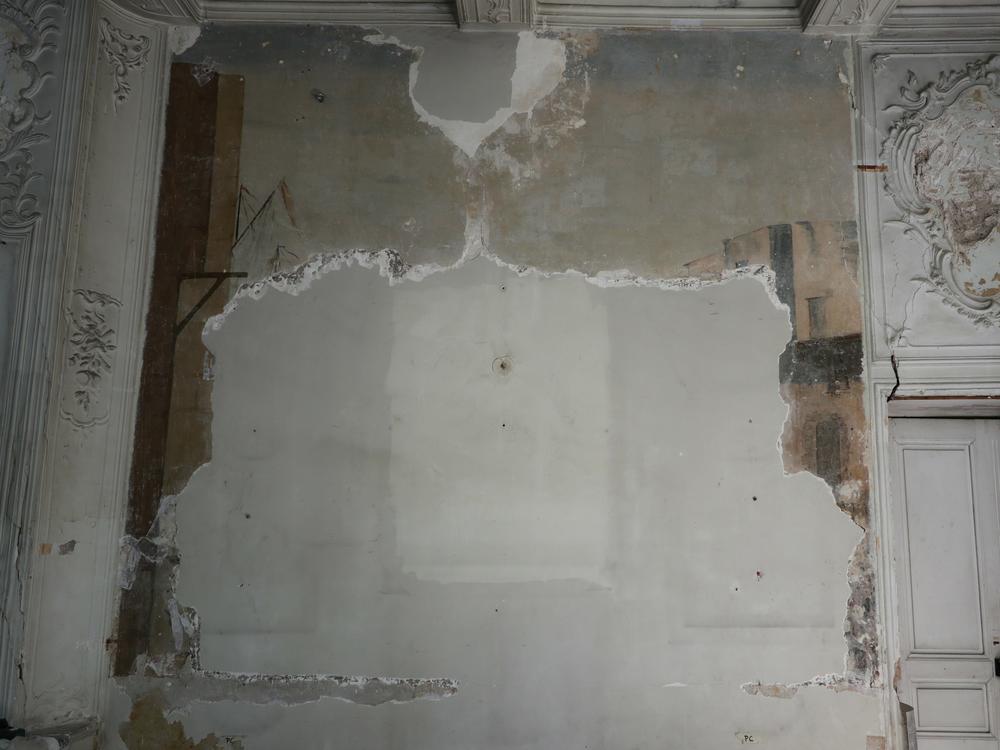Section Branding
Header Content
Cezanne seascape mural discovered at artist's childhood home
Primary Content
A mural by Paul Cezanne has been discovered at the artist's family home, Bastide du Jas de Bouffan, in Aix-en-Provence, France.
The previously unknown large-scale artwork by the great Post-Impressionist painter, which experts are referring to as Entrée du port (Entrance to the Port), is in poor condition. It was hidden under layers of wallpaper, plaster and paint. But despite the gaping hole at its center, the composition clearly depicts a harbor scene with boats and buildings set against a streaked white and blue sky.
Contractors uncovered the artwork during renovations at Bastide du Jas de Bouffan last August in preparation for upcoming celebrations centering on Cezanne's connection to Aix.
In an interview with NPR, Cezanne scholar Mary Tompkins Lewis said she learned about the discovery as part of a small group of experts who visited the property last September. "We were just thunderstruck," Tompkins Lewis said. "It was a very exciting moment."
However, local authorities in Aix only officially announced the find earlier this month. "We were sworn to secrecy," Tompkins Lewis said.
According to the Société Paul Cézanne (Paul Cezanne Association), the composition is one of 14 artworks (counting works in fragments) discovered on the walls of the Grand Salon at the Cezanne family home. The artist's father purchased the property in 1859 and allowed his son to experiment liberally in the space with his brushes and paints over the decade.
The young man took the opportunity to test his skills by imitating the works of other painters including the French artists Gustave Courbet and Nicolas Lancret, and the Dutch artist Jacob van Ruisdael.
"The artwork expands our understanding of how the artist developed his style," said Tompkins Lewis, noting the probable influence of Claude-Joseph Vernet, an 18th-century French painter well known for his harbor scenes, on Cezanne's Entrée du port. "We really see him grow up from a provincial painter trying to please his father to this young rebellious artist who would take on the world in Paris."
In an interview with NPR, Société Paul Cézanne president Denis Coutagne said the other Cezanne murals discovered on the walls of the salon were removed from the property over the years. These works are now housed in various institutions around the world, such as the Musée d'Orsay in Paris, France; the Nakata Museum in Onomichi, Japan; and the Chrysler Museum of Art in Norfolk, Va.
But Coutagne said the fate of Entrée du port will be different.
"This mural that we discovered, we're going to leave it; we're going to keep it there," Coutagne said. "It's the result of continuous restoration work on the Grand Salon, with a view to its reopening in 2025."

